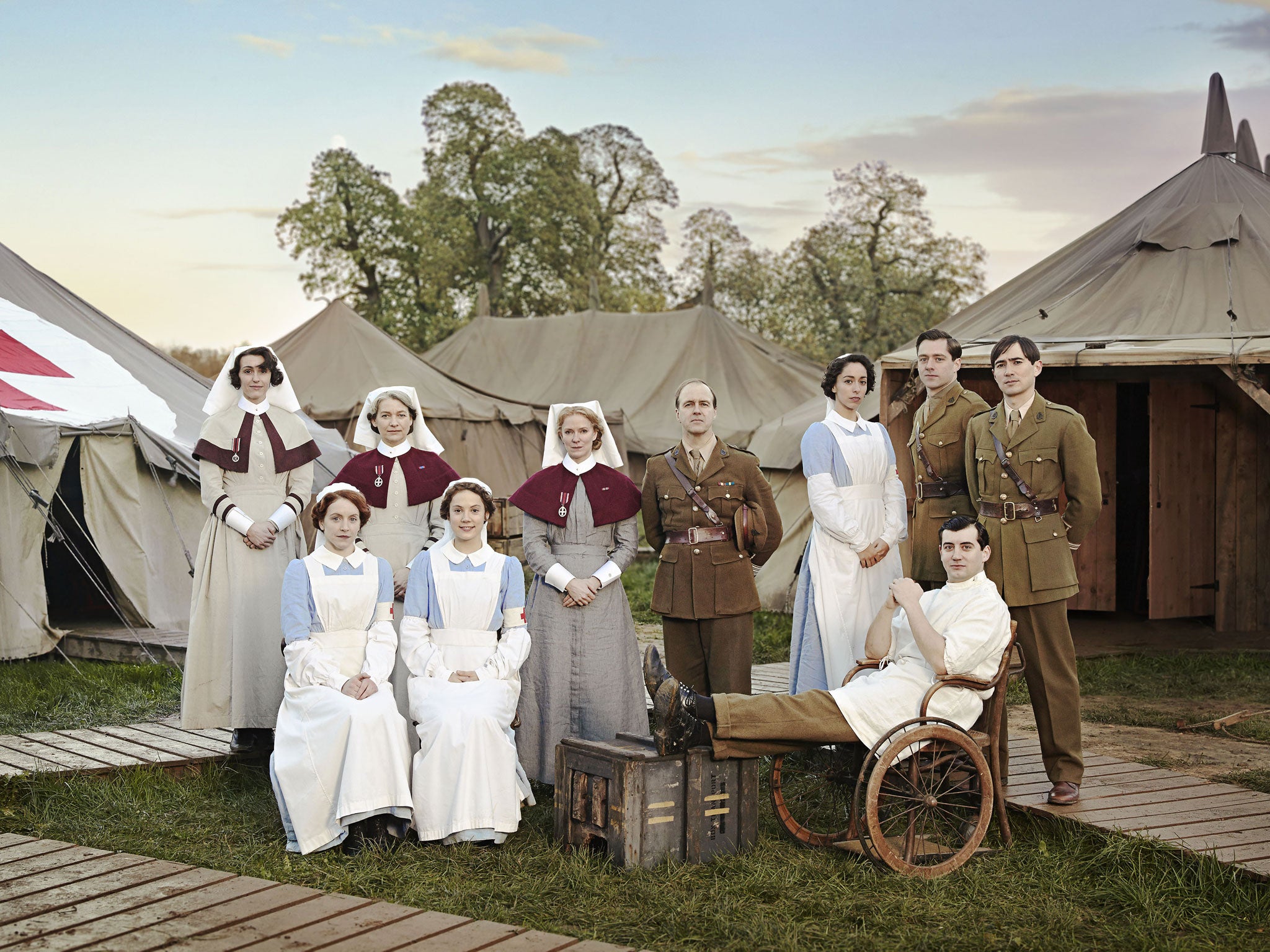The Crimson Field, TV Review: ‘The Lucky Thirteen’
WWI nurses’ love lives continue to be the focus of this period drama

The melodrama continues as we follow the nurses’ love lives. The drama has moved so far away from WWI the only thing reminding us it’s a wartime drama is the amount of khaki wandering across the screen.
Kitty’s turbulent past is exposed when her abusive husband (played by Sam Weston) appears at the nearest civilian town to get her to sign the divorce papers. Luring her upstairs by pretending her daughter is present, the episode looks like it’s about to take a very nasty turn (Downton Mark II) before she’s rescued by Miles, who just happens to be passing.
Weston and Chaplin make for an excellent pairing - his unruffled menace contrasting Kitty’s complete disintegration.
Meanwhile, Liverpudlian friendship battalion ‘the lucky thirteen’ face despair after their ‘Dad’ (Lee Ingleby) fails to pass his medical allowing him to return to the front. Flora’s love interest Charlie blackmails Sister Livesy (having waited on her and her German fiancé in Liverpool) in order to ensure he stays with the group.
Against their jovial bantering the return of the now irreparably damaged Prentis is made even more apparent. The only good thing out of the situation is Sister Quayle gets heavily reprimanded by Lieutenant-Colonel Brett, leading to a confrontation scene between her and Matron which really fails to get off the ground.
The best scenes are those surrounding the younger nurses, notably either Alice St Clair or Chaplin. Both bring an immediacy to their roles, making them believable where the older characters sometimes stray too far into stereotype.
Although Sister Quayle and Matron’s argument fell flat - despite Quayle’s barb about Matron’s “exotic” tastes - Quayle’s temporary dismissal will surely only give her time to plot the next dastardly plot development.
In terms of historical inaccuracies many WWI buffs are up in arms about the lack of correct salutes (in the last episode the soldiers were saluting naval style, i.e. open palm).
Really though, this is a show that isn’t about the war. It’s a great vehicle for the BBC to showcase it’s ability to put on a sumptuous costume drama, ramp up the emotion through setting and romanticise any element they can lay their hands on.
It makes for great Sunday evening TV, even if - like Miles - you’d rather be in the bath reading Tarzan.
Join our commenting forum
Join thought-provoking conversations, follow other Independent readers and see their replies
Comments
Bookmark popover
Removed from bookmarks